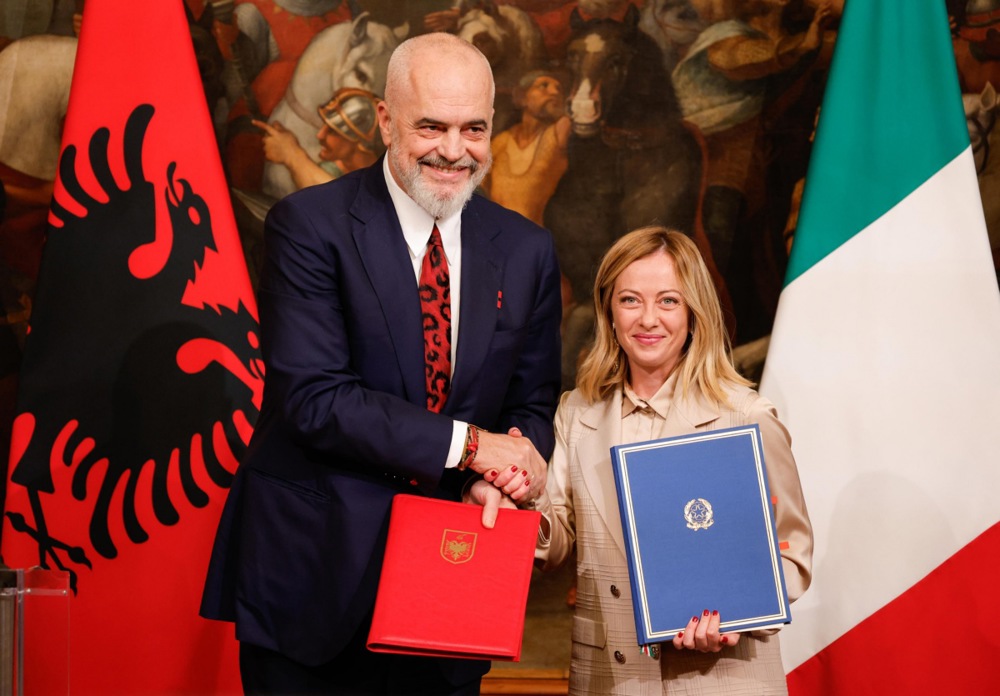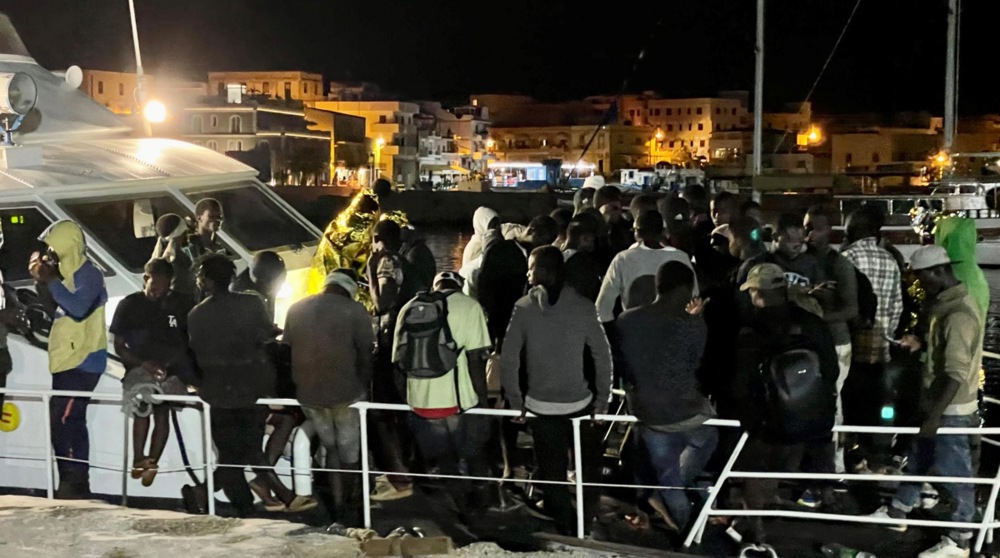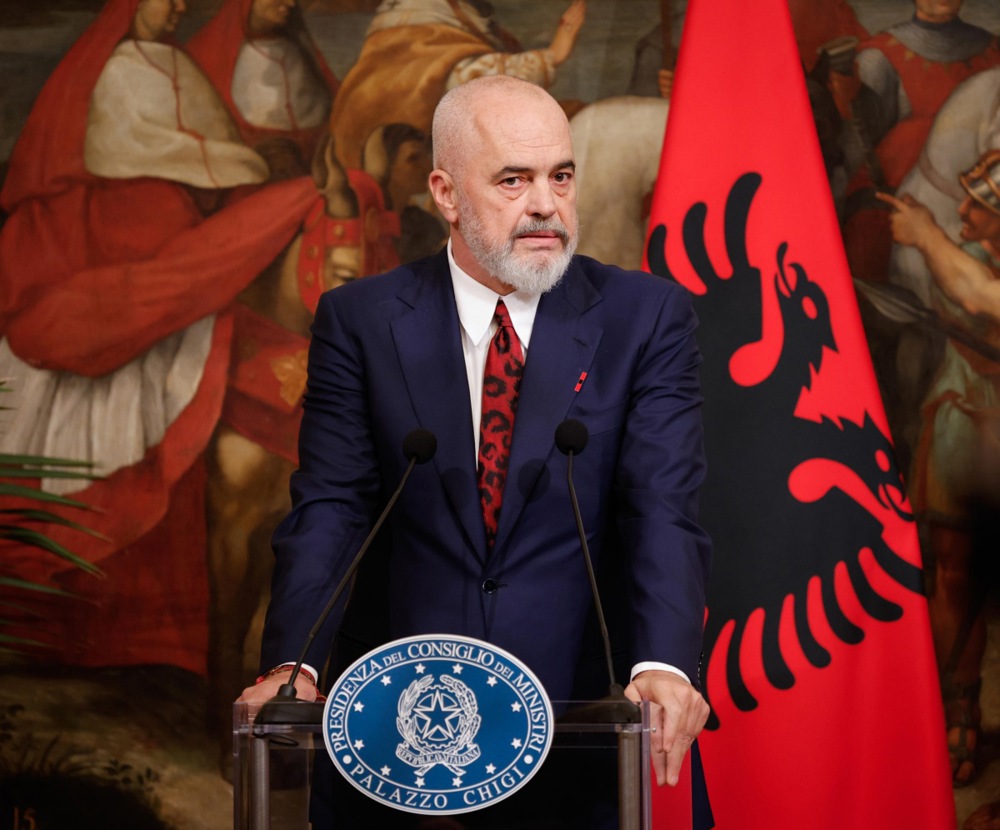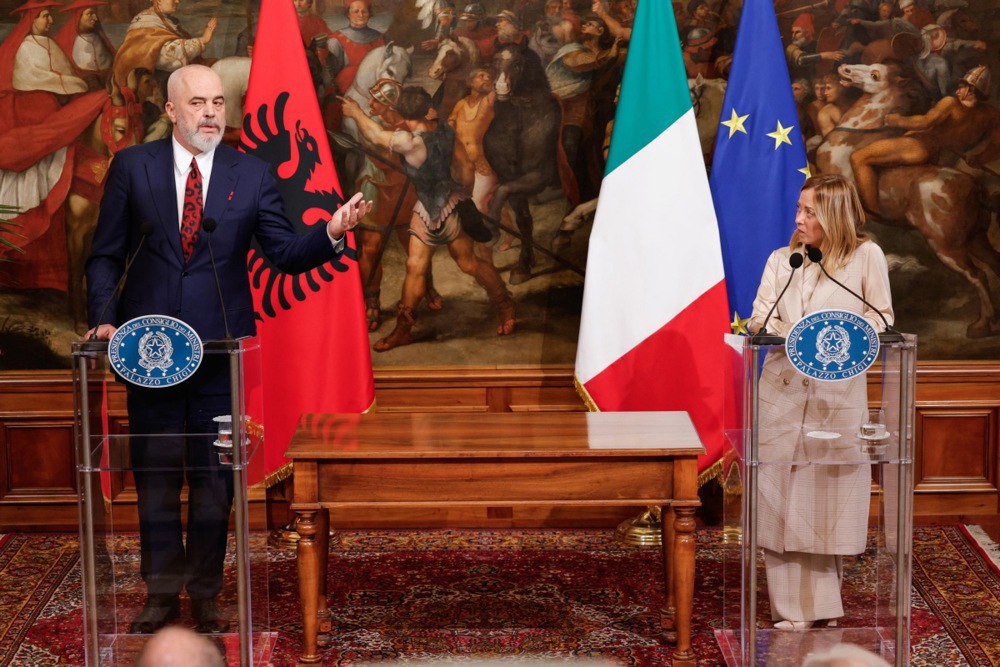Albanian lawmakers on Thursday ratified a migration deal with Italy under which it will build processing centres for migrants sent on to its Balkan neighbour across the Adriatic Sea.
It is the first example of a non-European Union country accepting migrants on behalf of an EU nation, and is part of an EU-wide campaign to clamp down on irregular immigration that has fuelled a rise in the popularity of the hard-right.
Seventy-seven deputies in the 140-seat parliament voted in favour of the deal, announced in November, under which Italy will open two camps in EU-aspirant Albania, one of Europe’s poorest and least developed countries.
“Albania is standing together with Italy by choosing to act like an EU member state,” Albanian Prime Minister Edi Rama wrote on social media platform X following parliament’s vote.
“No country can solve such a challenge alone. Only a stronger, braver and more sovereign Europe loyal to itself can.”
Both camps would be built on Albania’s northern Adriatic coast. One would screen migrants on arrival and a second would hold them while asylum applications are processed. Migrants would then either be allowed to enter Italy or be repatriated.
The deal has drawn criticism from those who fear its impact on Albania’s security and financially vital tourist industry, as well as the rights of migrants.
“This (tourist area) will not be the same again once the migrant processing centres are built,” said Arilda Lleshi, an activist who protested in front of parliament during the vote.
“We have reasons to believe that these (migrant centres) will be a security problem for the whole area.”
The agreement was challenged in Albania’s Constitutional Court by the main opposition Democratic Party, which argued that it broke the constitution by ceding territorial and state power on Albanian soil to another country.
The Constitutional Court rejected the claims and gave a green light for the deal last month. The European Commission has said that the Italian plans do not breach EU law.
Rights experts warn it might be hard for Italian courts to promptly process asylum requests or appeals against detention orders from people hosted in another country, and that lengthy procedures could put an unjustified burden on migrants.
The accord has drawn comparisons with Britain’s plan to send asylum seekers to Rwanda in East Africa as a deterrent to further migrant journeys in small boats across the Channel from France organised by human traffickers.
An Italian government source said Rome aimed to have the centres in Albania operational by this spring.





